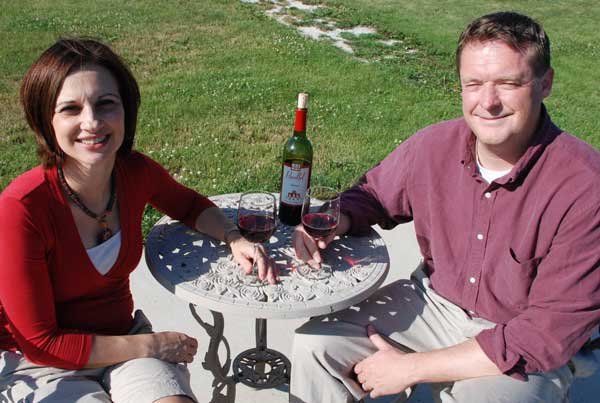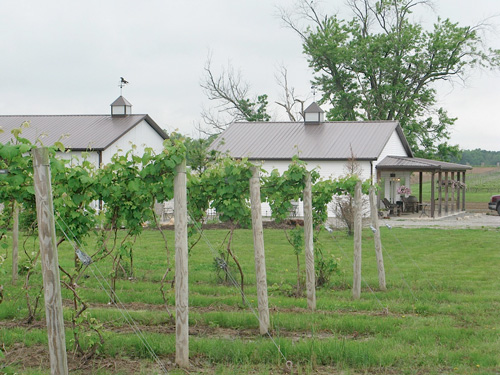Crop Report From Wis.’ Largest Winery
Wollersheim Winery in Wisconsin is one of the best hybrid winemakers in the Midwest which is why we write about them so often in Midwest Wine Press. (Like all the best Midwest wines, Wollersheim wine is just good wine, plain and simple.)
For the estate grown wines, Wollersheim’s main grape is Foch with over 20 acres under cultivation.
Growing Foch in Wisconsin is not for the faint of heart. During the spring freeze of ’12, Wollersheim’s Foch took a substantial hit. Foch buds out earlier than most wine grapes and is therefore susceptible to spring frost.
This winter has also been tough on Foch. Wollersheim reported today that they expect a 40% to 50% reduction in crop load this year. (While the Winery’s report did not specifically mention Foch, the other primary grapes that Wollersheim grows in Prairie du Sac are St. Pepin and LaCrosse.)
While losing grapes is never a good thing, the news could have been worse. Foch’s reported cold tolerance limit is -15F to -20F. In nearby Madison, WI, the temperature dropped to -15F or below four times this winter. (The low temperature was below zero 25 of 62 days in Madison between January 1 and March 3, 2014. Wisconsinites can handle tough winters, but that’s serious cold.)
During a 2013 interview, Wollersheim winemaker Philippe Coquard told Midwest Wine Press that he might consider planting Marquette, but he has concerns about late ripening with Marquette. However, Marquette, with its Vitis Riparia wild grape ancestry, can handle temperatures of -20F to -30F.
One of the questions that will certainly result from this winter concerns the suitability of moderately cold tolerant cultivars, like Foch, in the upper Midwest.




Thanks for the article, Mark. We wanted to clarify a few things. The source of the information regarding bud loss was an e-newsletter that we distribute to our customers every few months. We find it important to share both ups and downs with our customers, so we chose to share this information generally, but did not include technical specifics. Due to an exceptionally cold winter, we did experience bud loss of about 40-50% overall. In your article, you question the winter-hardiness of Foch, but in truth, Foch fared the best of all grape varieties we grow here with only 10-20% bud loss; the majority of bud loss was among the other varieties (Millot, St. Pepin, La Crosse). We are pleased to have found that Foch weathered this year’s tough winter just as well as the rest of us Wisconsinites.
Best,
Wollersheim Winery
I would agree that Foch is much hardier than people give it credit for. I had -28F in my vineyard near North Branch MN last winter. These were short lived low temps so we saw little damage. We will have to wait to see how they handled this winter. Foch has an up side that with these lows we will see some primary bud damage, however it’s secondary buds are quite fruitful. When we have have all primary buds we have to drop clusters as it will usually set 3-4 cluster per shoot, but will typically set two clusters on secondary shoots. In general I have much less winter issues with Foch than I do with other vines that are supposed to be much hardier so I like it and would encourage people to give it a try.
Irv Geary
Wild Mountain Winery